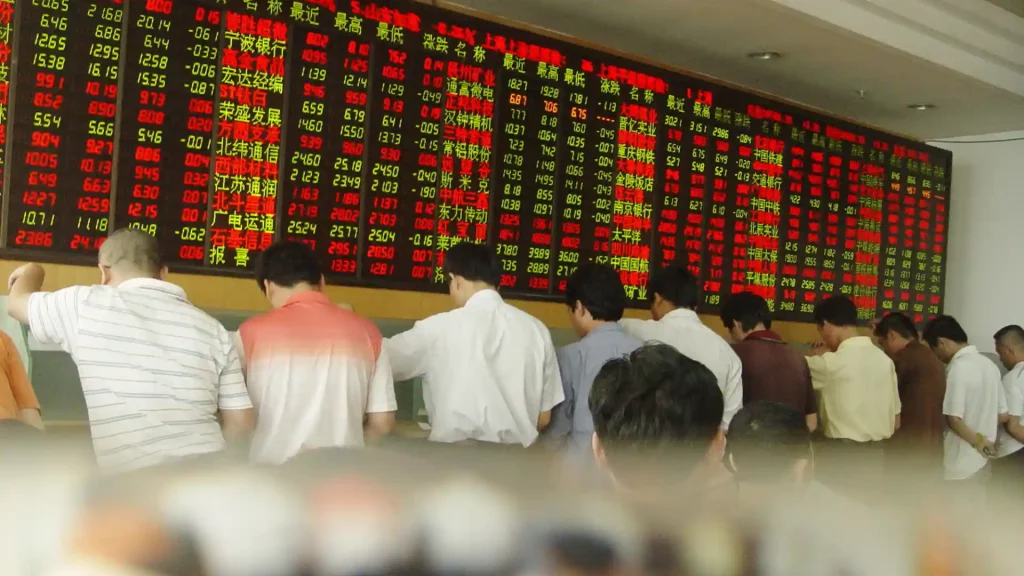The Chinese markets again tanked on Monday this week, continuing a long period of bloodbath brought up by exiting foreign investors alarmed by the insecure Beijing economy and a lack of government initiatives.
China has another problem: a plummeting stock market amidst economic pressures. The equity index derivatives are bleeding billions of dollars in losses as the stock market tanks to multi-year lows this week. This is further fueled by massive selling pressures in stocks and futures contracts as market participants run to minimise their risks.
The Chinese and Hong Kong stock markets again tanked on Monday this week, continuing a long period of bloodbath brought up by exiting foreign investors alarmed by the insecure Beijing economy and a lack of government initiatives. The second biggest economy of the world is witnessing negative foreign direct investment after decades, the real estate crisis further widens the gap in the economy.
Beijing announced its interference to stabilise the falling market, inviting a mixed response from worrisome investors. Authorities are looking to allocate 2 trillion yuan ($278.53 billion) from offshore accounts of government-owned companies. They would buy securities onshore from the Hong Kong exchange.
Government officials have further allocated upwards of 300 billion yuan from domestic funds to purchase onshore shares via the China Securities Finance or Central Huijin Investment.
The announcement from authorities surged the share for a short while; later, they retreated and closed almost flat. The blue-chip index (CSI300) trades around 5,000, a 5-year low, and the Shanghai Composite Index closed below the psychological level of 2,800.
Market participants said that the drop activated some knock-in levels with trigger orders for large contracts on snowball products, known as auto-callables in some markets. This led to a domino effect of further selling in futures contracts.
Jon Withaar, manager of an Asian special situations hedge fund at Pictet Asset Management, said that there is a wide array of structured products curated for retail participants, known as snowballs, having a knock-in level equivalent to a stop loss order. The increase in futures trading volumes showed that these products were hedged via stock futures.
Snowballs as derivatives where investors receive a bond-like coupon for their underlying assets like the CSI500 and CSI1000 indexes don’t hit a fixed knock-in or trigger price. These were highly likeable until recently, when knock-ins started happening at a large scale as indexes fell drastically.
UBS analysts predict that an outstanding notional amount in such products has reached around $50 billion, and approximately 40% of knock-ins have been triggered.
Brokerage China International Capital Corp (CICC) anticipates that the average knock-in level for snowball products with CSI500 and CSI1000 as underlying assets were 4.865 and 4,997, very close to the present levels of the indices.
Analysts at Bank of America expect that this snowball effect was one of the main reasons for the fall in the already weak market. The Bank further estimates that a fall of 6-7% in both the CSI500 and CSI1000 indexes will trigger another round of knock-ins.
Global money managers who have been unloading their holdings in the Chinese market after the post-pandemic recovery dwindled. They say that the stimulus provided by the government to resolve the real estate crisis is inadequate and might take longer than expected to bear fruits.
International fundshouses have sold around $1.6 billion in Chinese equities in 2024 alone. The main sellers happen to be Europe-based active funds and Hong Kong passive money, reported Morgan Stanley.
Futures contract for CSI1000, expiring in September this year, plummeted the most, hitting a circuit of 10% on Monday to 8% below where the index was trading. The Futures contract for CSI1000, expiring in February, recorded a turnover of 13 billion yuan in the past month.
David Huang, senior investment strategist at AllianceBernstein, said that Snowball products are similar to the index-tied products sold before the 2008 financial crisis, with investors betting that the US equities won’t fall more than 25-30% and what people expected would happen, actually happened. This proves that A-shares would be in their last trenches, and the market as a whole would be nearing a bottom.
